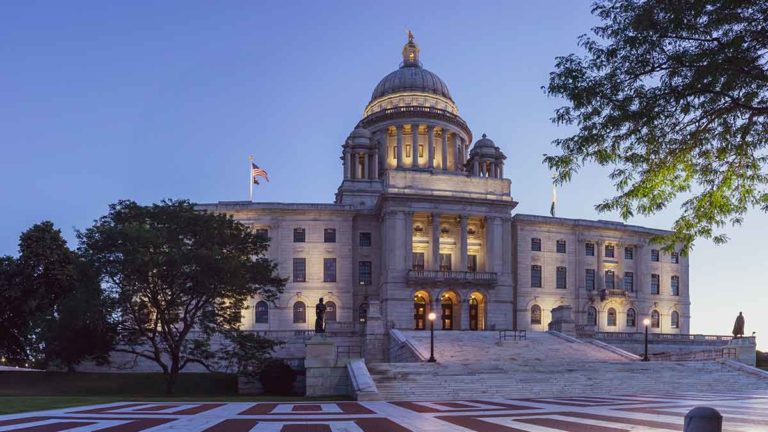
In Rhode Island on Thursday, a House panel considered an adult-use marijuana legalization proposal from Gov. Daniel McKee (D). They also heard three separate bills that would make considerable reforms to the current medical cannabis program.
Although lawmakers did not act on any of the proposals, they did ask detailed questions about how-not whether-to eventually legalize cannabis.
Legislative leaders continue to talk about how ending marijuana prohibition is unavoidable in Rhode Island. But they have also acknowledged that creating policies that will garner support from both sides might take some time. Coming to an agreement on some provisions could prevent the policy change from occurring this year.
The chair of the House Finance Committee Rep. Marvin L. Abney (D), stressed at the hearing that holding bills is the routine. It is a common occurrence, especially if there’s work that still needs to be done on a bill. Typically, they will hold a bill for further study, not to kill it or prolong the process.
The Two Legalization Proposals
The governor has one of two proposals to legalize commercial cannabis sales for adults 21 and older. Senate leaders have the other proposal. Both measures were heard in a joint committee hearing in early April.
The two proposals vary in several ways. The first is how the new industry would be overseen. The Senate bill would create a separate commission to regulate cannabis. But the governor’s budget proposal would leave control to the Department of Business Regulation (DBR)’s Office of Cannabis Regulation. They currently run the state medical marijuana system.
Matt Santacroce, who heads the DBR, told lawmakers that the department has had success working with medical marijuana licensees. The governor’s plan aims to leverage existing governance infrastructure. This is important to note because it will not create anything new. Comparatively, the Senate bill proposes establishing an independent commission. That will take time and money.
The second difference has to do with social equity and licensing provisions for people impacted by the war on drugs. As well as taxes and other regulatory details. The governor’s plan will add a three percent tax to medical marijuana cultivators. Effectively, this will raise the price of medical marijuana for patients.
Criticism from All Sides
During Thursday’s hearing, lawmakers avoided outright debate about the governor’s proposal. But they did ask several detailed questions about its provisions, probing legal liability around a lottery-based business licensing program, and wondering about the accuracy and precision of roadside impairment tests for drivers.
While public testimony was overwhelmingly supportive of ending cannabis prohibition, it didn’t end without criticism.
Social justice advocates said the equity provisions in the governor’s proposal fall short of what is needed. Many noted that the proposal lacks automatic expungement provisions.
Others criticized the social equity licensing provisions. They specify that the first five cannabis business licenses of every type would go to qualifying minority-owned businesses.
Three Separate Bills
The House Finance Committee in Rhode Island also took up three separate bills on Thursday. Each bill would make changes to the existing medical marijuana program. Critics have said that the program is too restrictive.
HB 5452 would require the state Department of Business Regulation to analyze the licensing system from a social equity and racial perspective. It would also move to eliminate barriers of entry for people most impacted by prohibition so that they can participate in the industry.
HB 5451 would earmark marijuana tax revenue for a “distressed communities relief fund.” It would also earmark charitable organizations that legislative leaders would select each year.
Finally, HB 5453 would eliminate a series of existing regulations for the state’s medical cannabis program. Like the plant-tagging system, annual dispensary license fees would decrease from $500,000 to $5,000, and the cap on the number of shops that could operate would be removed. Instead, it would be based on the state’s population. This bill would also expand the definition of who could qualify as a medical marijuana patient.
Make sure to check back for more cannabis and hemp related news.